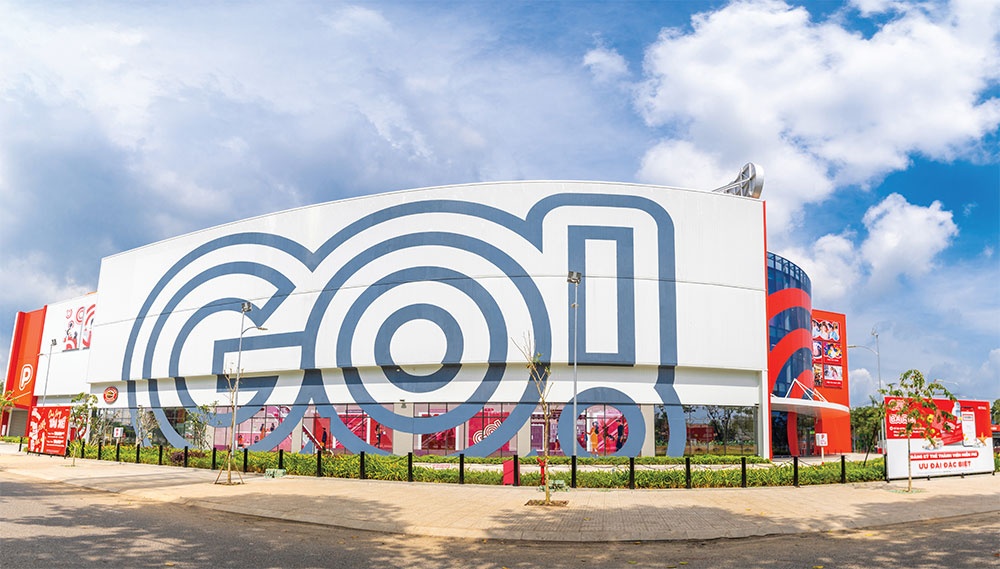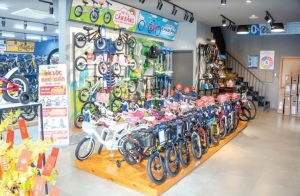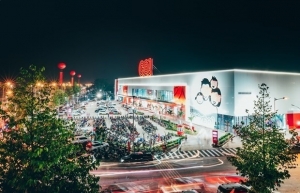Adjusting the direction of retail strategies
Tran Kim Nga, foreign affairs director of MM Mega Market Vietnam, said that facing the pressure of inflation, consumer shopping behaviour is more likely to pay more attention to promotions and buying in bulk to save money.
“People are cutting back spending on non-essential items. Meanwhile, for essential items, they tend to prioritise choosing alternatives with more reasonable prices,” said Nga.
In that context, MM Mega Market Vietnam focuses on consistently tracking and capturing customer consumption behaviour for essential and non-essential items, thereby diversifying products, localising supply, and searching for suitable goods to import.
 |
| Adjusting the direction of retail strategies |
Enterprises are also taking advantage of localisation advantages and purchasing experience to promote the development of owned-brand products and direct sourcing products, aiming to offer customers with products at reasonable prices and guaranteed quality.
Nga shared that MM Mega Market Vietnam will continually implement sales promotions to stimulate demand, such as bigger pack sizes, bundles, buy-one-get-one-free offers, and more. Enterprises will coordinate with Ho Chi Minh City Department of Industry and Trade to call suppliers to cooperate in stabilising prices, regulating the supply and prices of goods in the market, and preventing harmful effects of inflation on the growth of the economy.
“We will optimise operational costs by reviewing processes and finding digital technology solutions to improve operational efficiency and reduce unnecessary costs. Thereby, we continue to reinvest in products and services that bring core value to customers,” added Nga.
Many consumers are looking to used goods as one of the solutions to save on spending and respond to the situation of escalating commodity prices. According to RedSheer Strategy Consultants, Vietnam’s second-hand market is facing great opportunities to hit over $5 billion by 2026, a significant boost from its value of $1.1 billion in 2021.
The Carousell Recommerce Index 2021 report shows that 8 out of 10 respondents in Vietnam said they bought used items and continue to do so. Reusing, recycling, and protecting the environment have emerged as one of the top concerns of young people, especially Gen Z, who will have a growing influence on purchasing decisions for their families and shape future consumer trends.
Hoang Thi Minh Ngoc, strategy and growth director at online classified marketplace Cho Tot, said that by acknowledging such trends, Cho Tot is boosting re-commerce, or the selling and buying of used products, helping consumers save money, promote a circular economy, prevent a generation of waste, and minimise adverse impacts on the environment.
“Young people’s tendency to buy used goods is increasingly popular. In the context of escalating prices, using old products is considered a solution for young people to save money to compromise other basic needs, such as food, fuel, and healthcare,” Ngoc said.
Currently, environmental protection is also a top concern of youth. The most purchased used items are phones and laptops, followed by household items such as refrigerators, air conditioners, and washing machines, according to Ngoc.
Meanwhile, Central Retail focuses on customers with low to middle income. Christian Olofsson, managing director of property at Central Retail Vietnam, said the group is well positioned to continue to provide products with the best prices to Vietnamese consumers.
“For secondary investors who are tenants of the shopping mall, Central Retail will streamline them to complement each other, providing an affordable shopping destination, creating a multi-utility model,” Olofsson said.
Omnichannel: a new weapon
Retail, which suffered heavily from the pandemic, is rebounding strongly with a modern strategy called omnichannel. Furusawa Yasuyuki, general director of AEON Vietnam, said that digital transformation means applying technology to products and services to meet customers’ needs.
In 2022, AEON Vietnam has focused on developing applications and digital platforms, thereby promoting the growth of the number of users. The businesses can look at a user’s shopping database to capture needs and behaviours, thereby providing appropriate solutions to enhance the shopping experience.
“Currently, the rate of cashless payments is growing continuously at AEON’s stores and supermarkets. I believe that Vietnam, with the current rate of e-commerce development, will soon reach China’s non-cash payment rate, about 75-80 per cent. Businesses in Vietnam need to accelerate in encouraging and facilitating customers to use non-cash payment methods,” said Yasuyuki.
Le Hoang Lan Nhu Ngoc, senior director of real estate firm Cushman & Wakefield Vietnam, said omnichannel selling is the saviour of the retail industry in the digital age. Retailers that start with an online store can benefit from a brick-and-mortar store through data collected from the internet.
“By profiling online shopping habits and making the right judgments, online retailers can capture consumer interest without wasting space. The most sold products online are clothing, sportswear, equipment, cosmetics, electronics, household appliances, and so on,” Ngoc said.
In a brick-and-mortar store, consumers will spend money on food, drinks, entertainment services such as cinema tickets, children’s play areas, and so on, all of which run special promotions to attract customers.
Olofsson of Central Retail noted that the group is also promoting multichannel sales activities throughout its system. “Digital transformation is being implemented strongly throughout our entire system. Interactive channels such as social media, telesales, and so on are also simultaneously promoted,” he said.
| Fierce competition Vietnam’s retail market has great potential, but it has also witnessed fierce competition that has forced many big players like Parkson and Auchan to leave. Experts have pointed out the reasons for large retailers to exit, including building inappropriate business strategies. However, factors also include businesses not being focused on market research, having insufficient market knowledge, and developing in an incompatible manner when compared to the needs of the market. |
 | Retail bike chains anticipate brighter future After two years of constant growth, the retail bicycle market is undergoing a slowdown as demand takes a dip, yet investors are still betting on bikes as a venture with long-term potential. |
 | Retail businesses optimistic in face of erratic environment The decrease in purchasing power due to the belt-tightening of consumers has seriously affected the business situation of most retail businesses. However, many businesses are still very optimistic about the market’s prospects and believe that the new strategy will help them settle down soon. |
 | Thai largest retailer to pour over 1.4 billion USD in Vietnam Central Retail Corporation (CRC), the largest retailer of Thailand, has announced its biggest investment in Vietnam at 50 billion baht (1.45 billion USD) in the 2023-2027 period to accelerate its market presence in the country. |
What the stars mean:
★ Poor ★ ★ Promising ★★★ Good ★★★★ Very good ★★★★★ Exceptional
Related Contents
Latest News
More News
- Masan Consumer names new deputy CEO to drive foods and beverages growth (February 23, 2026 | 20:52)
- Myriad risks ahead, but ones Vietnam can confront (February 20, 2026 | 15:02)
- Vietnam making the leap into AI and semiconductors (February 20, 2026 | 09:37)
- Funding must be activated for semiconductor success (February 20, 2026 | 09:20)
- Resilience as new benchmark for smarter infrastructure (February 19, 2026 | 20:35)
- A golden time to shine within ASEAN (February 19, 2026 | 20:22)
- Vietnam’s pivotal year for advancing sustainability (February 19, 2026 | 08:44)
- Strengthening the core role of industry and trade (February 19, 2026 | 08:35)
- Future orientations for healthcare improvements (February 19, 2026 | 08:29)
- Infrastructure orientations suitable for a new chapter (February 19, 2026 | 08:15)

 Tag:
Tag:



















 Mobile Version
Mobile Version